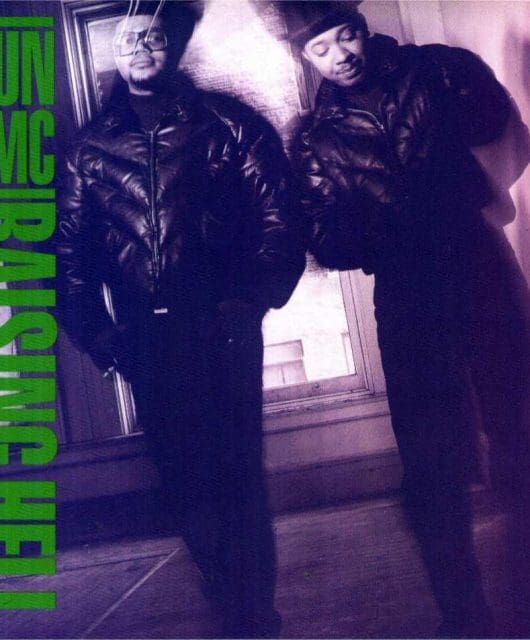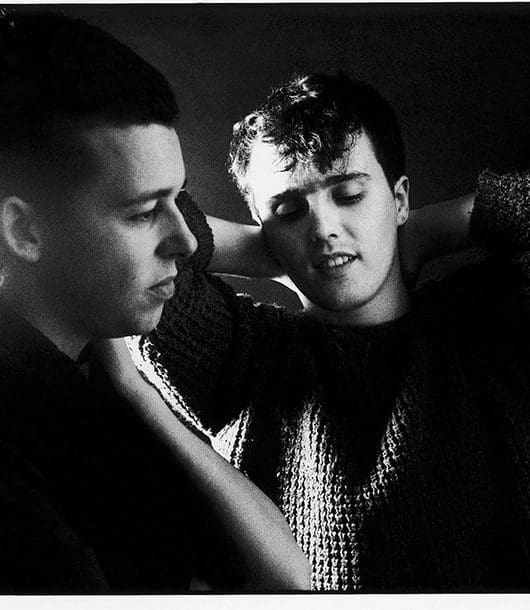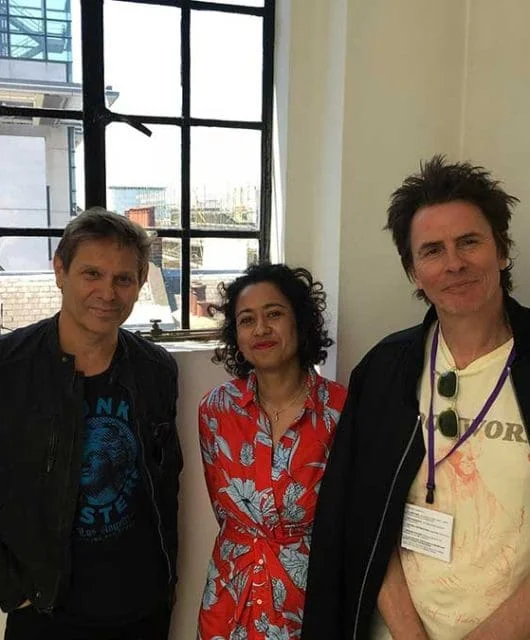Tom Bailey reflects on the Thompson Twins’ Into The Gap
By Steve O'Brien | February 9, 2024
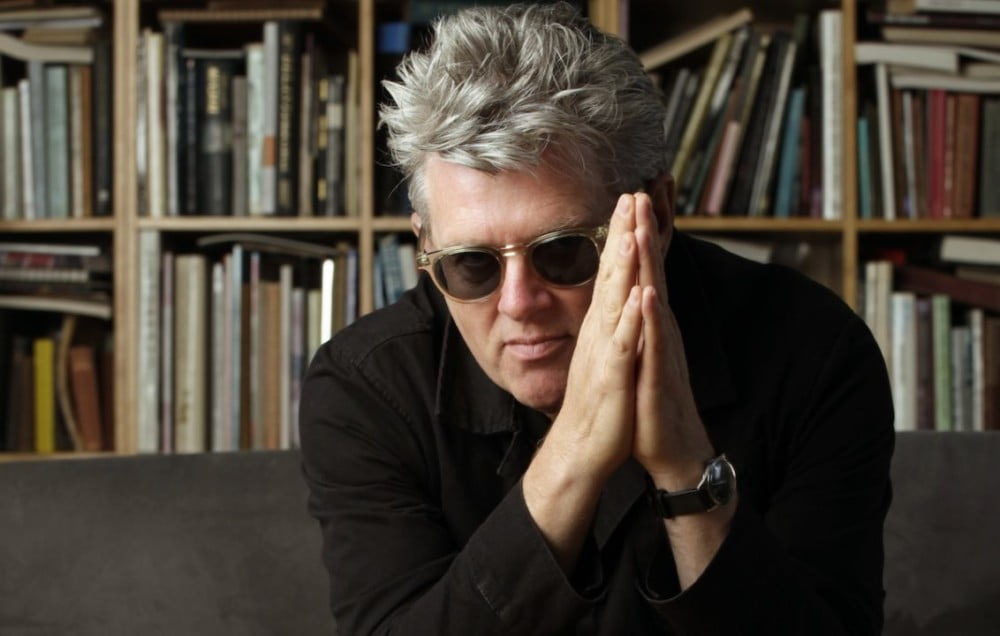 The Thompson Twins’ Tom Bailey looks back at the band’s fourth studio album Into The Gap
The Thompson Twins’ Tom Bailey looks back at the band’s fourth studio album Into The Gap
The Thompson Twins released their fourth long-player, Into The Gap, in February 1984. Here, frontman Tom Bailey reflects on the band’s biggest-selling album…
1984 was quite the year for the Thompson Twins with the band – consisting, at this point, of Tom Bailey, Alannah Currie and Joe Leeway – at the top of their commercial game. Not only did they enjoy four Top 20 UK hits that year, they also hit No.1 for the first and last time with their two times platinum album, Into The Gap.
“I remember New Year’s Eve 1983,” Bailey tells Classic Pop via Zoom from his home in New Zealand, “as we were doing an MTV concert in New York with Billy Idol. There was just a sense in which things were going to be good for us in the coming year…”
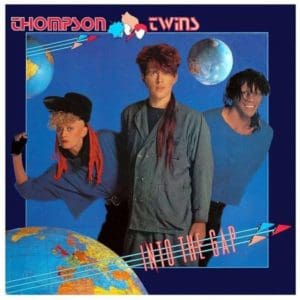
Thompson Twins really broke through in 1983, so do ’83 and ’84 blend into one for you?
A little bit, yeah. It was a continuous kind of take-off period, and very exciting, in the sense that a party is going on all the time. Also, I guess it’s where you learn to get the measure of it and say, “You can’t do this every night of the year otherwise something will implode…”
Were you a hard partier at the time?
By that stage, I’d given up drugs and drink completely. I was Mr Sober, which put me in a kind of very select club in rock’n’roll. Most people around me were going for it, so I had a rather strange view of everything. I never woke up thinking, ‘Jeez, that was a heavy night’. It wasn’t like that for me, whereas everyone else seemed to be doing that.
I always say, kind of jokingly, that in America that it turned me on to country music because when you’re touring after the show, if you’re on a bus, everyone’s in the back of it partying, whereas I was up front with the driver. And drivers in America always listened to country and western music so it exposed me to this music that I’d never been interested in.
You released Into The Gap in February ’84, by which time you were averaging an album every 12 months. Was it important to keep up the momentum?
I never thought of it that way. But I guess the management of the record company had an eye on those things because they make hay while the sun shines. There was definitely a ‘record, then tour, then go back into writing as fast as you can’ approach.
We got lucky with Into The Gap in the sense that we’d matured as songwriters after the previous album, so it was quite an easy record to write. We followed our recording pattern in as much as we went and cut the basic tracks in the Bahamas at Compass Point. We’d done that on the previous album, and we thought, it works, let’s use the same plan with the same people, basically.
How long did the writing take? I presume by this point you’d gotten it down to a fine art.
I can’t remember exactly how long it took, but it wasn’t a long torturous process. I think it was maybe four weeks of writing. What we would do is rent a place in the countryside to get away from distractions, so there were no clubs, no parties, no dinner engagements, we just locked ourselves in. And we had a rule that we needed four hits before we could relax.
We came up with Hold Me Now, Doctor! Doctor!, Sister Of Mercy and probably You Take Me Up, and we thought, now we can be a little bit more experimental, because we’ve ticked those boxes. That’s the thing you aim for creatively, to cover the deadlines and the requirements so you can then be free to try out some things that perhaps might be a bit more risky. So it went perfectly in that sense – we wrote four obviously catchy songs, and then went on to try out some other more interesting things.
Let’s talk about some of the other singles. Sister Of Mercy is amazingly dark as a single. Did you feel any trepidation releasing that?
I didn’t feel any trepidation because it was a good song. The inspiration was all Alannah’s idea. She said there was this story of a French woman who had murdered her partner because he was so cruel to her over a long period of time. And in France, that falls into the category of something that we didn’t have in the UK legally, which is called the crime of passion, which carries a less severe penalty. And I suppose her feminist perspective was that that was a good idea, that when domestic violence was involved against partners, that they should be excused. And that’s what the song was about – it was the story of that woman.
I think it was cutting edge. I mean, most of the band’s work had a kind of liberation agenda behind it. People accused us of being saccharine and all the rest of it but we always had this idea that we were trying to make people’s lives and the world a better place, and personal politics came into that very, very strongly. I still like performing it these days, actually.
What about Doctor! Doctor!? At the time that was your highest-charting song.
I didn’t write that one, Alannah did. It’s another track in the tradition of seeing love as an illness and how it can be cured. There are lots of those and it’s a kind of a blues classic, isn’t it. But the fact is, I came from a medical family. I was having big fights at the time with my father who was a doctor and so maybe she was thinking about that when she wrote the song. But I think mostly the first explanation is the best. It’s just in the tradition of lovers’ sickness.
You Take Me Up was a big hit here (UK No.2), but its flip, Passion Planet, became a popular song on American radio. When you found that out, did you think, “Ah, we should have put that on the album…?”
It was just a bonus I think. Other songs were like that as well. Sometimes you get a freak response for reasons that you could never really explain. Passion Planet’s a really throwaway piece of work, it is a B-side in terms of its songwriting, but it has a catchiness about it.
There are just nine tracks on the album overall. Were there many left over that you just thought didn’t quite fit?
I can’t remember the discussion that took place about that at the time. What I do remember was that there was an absolute quality limit at 20 minutes per side. When we’re talking vinyl, the longer time on an album, the lower the quality reproduction, and 20 minutes was normally considered to be the borderline that you mustn’t cross. So maybe that was it – we just couldn’t add another song.
Apart from the singles, are there any deeper album cuts you particularly love?
Deep cuts is an interesting thing because we’re going to tour the album because it’s the 40th anniversary. I did this once in the UK in 2022 and then a short tour of Australia, performing the album just to see how it felt, and it’s really good. So we’re gonna do a tour of that and other things, obviously. But it means I had to dig out the songs I hadn’t listened to for a long time. And I must say there’s nothing on there that I think, ‘Oh, this is a bit tedious’. In some way, they all sparkle for me.
In those days, we all listened to albums as a whole, so it’s not just about the hits. So much so that I don’t perform the album in the order of the recording or of the pressing, for various reasons. One of which is I like to finish with Hold Me Now, because it’s a big singalong event, a very emotional thing at the end of the show.
But of course on the record, that’s not the last track. Some people get upset about that, but there are theatrical reasons why the order has to be changed for the live show. I really enjoyed rediscovering some of those, one of which was the title track, Into The Gap. We’ve decided to do it with an unusual line-up, so we have Middle Eastern drums, cello and bass, rather than all the keyboard parts.
Will you be doing little twists on other songs?
I’ve always done that, since getting back into live performance and with a new band. I took that as an opportunity to reinvestigate and contemporise the arrangements and the music. Partly because of technology – we have a lot of computer assistance in these things now that we didn’t back in the 80s.
Thinking back to 10-12 years ago, when the idea of performing again came up for me, I really was in a position of ignorance – I hadn’t listened to those works for a long time. I actually went out and bought a Thompson Twins CD to check them out.
I remember, on the tube going home, I made a mental note of which songs were the ones I wanted to sing. That was a strange moment, re-encountering your own work. It’s like reading an old diary, I guess, ‘cause it reminds you of things you’d completely forgotten that you suddenly realise are a big part of your identity.
For more on Tom Bailey’s 2024 live plans, head here
Read more: Thompson Twins / Tom Bailey – album by album
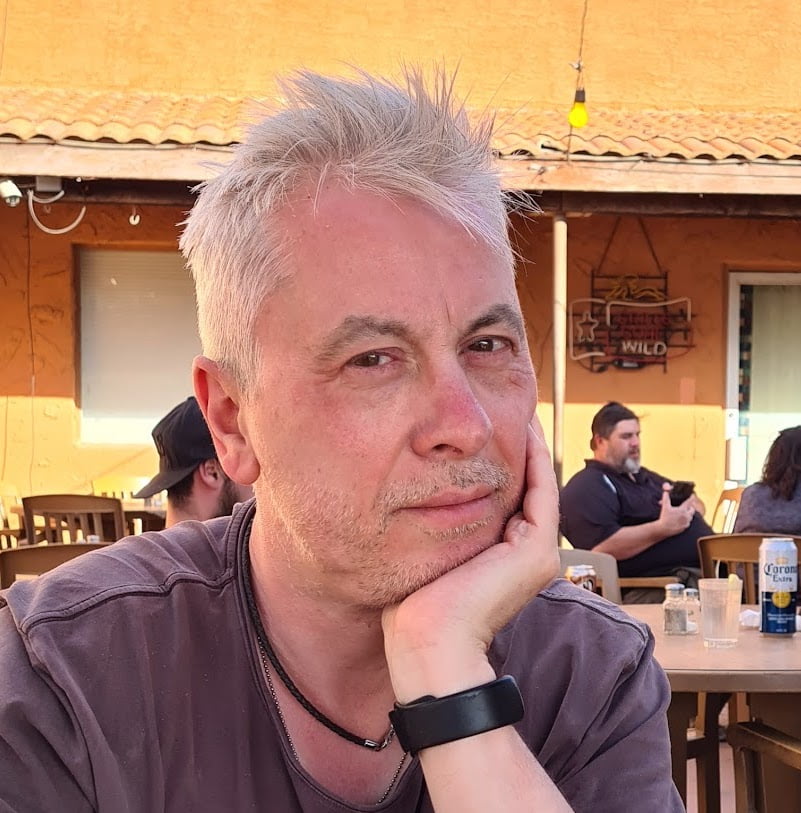
Steve O'Brien
Steve O’Brien is a writer who specialises in music, film and TV. He has written for magazines and websites such as SFX, The Guardian, Radio Times, Esquire, The New Statesman, Digital Spy, Empire, Yours Retro, The New Statesman and MusicRadar. He’s written books about Doctor Who and Buffy The Vampire Slayer and has even featured on a BBC4 documentary about Bergerac. Apart from his work on Classic Pop, he also edits CP’s sister magazine, Vintage Rock Presents.www.steveobrienwriter.com

